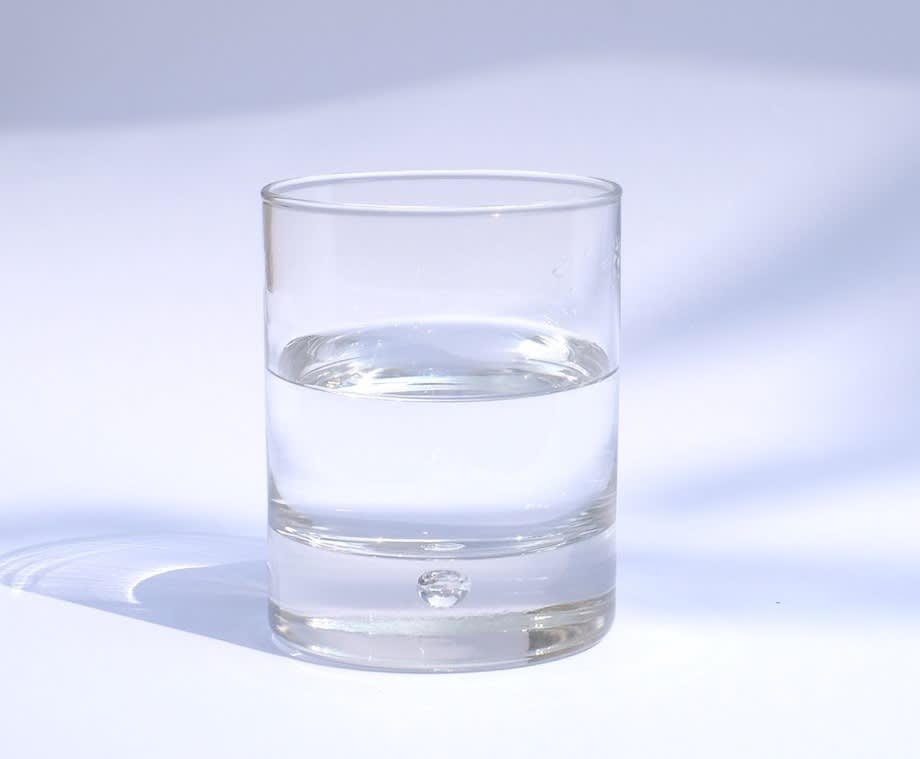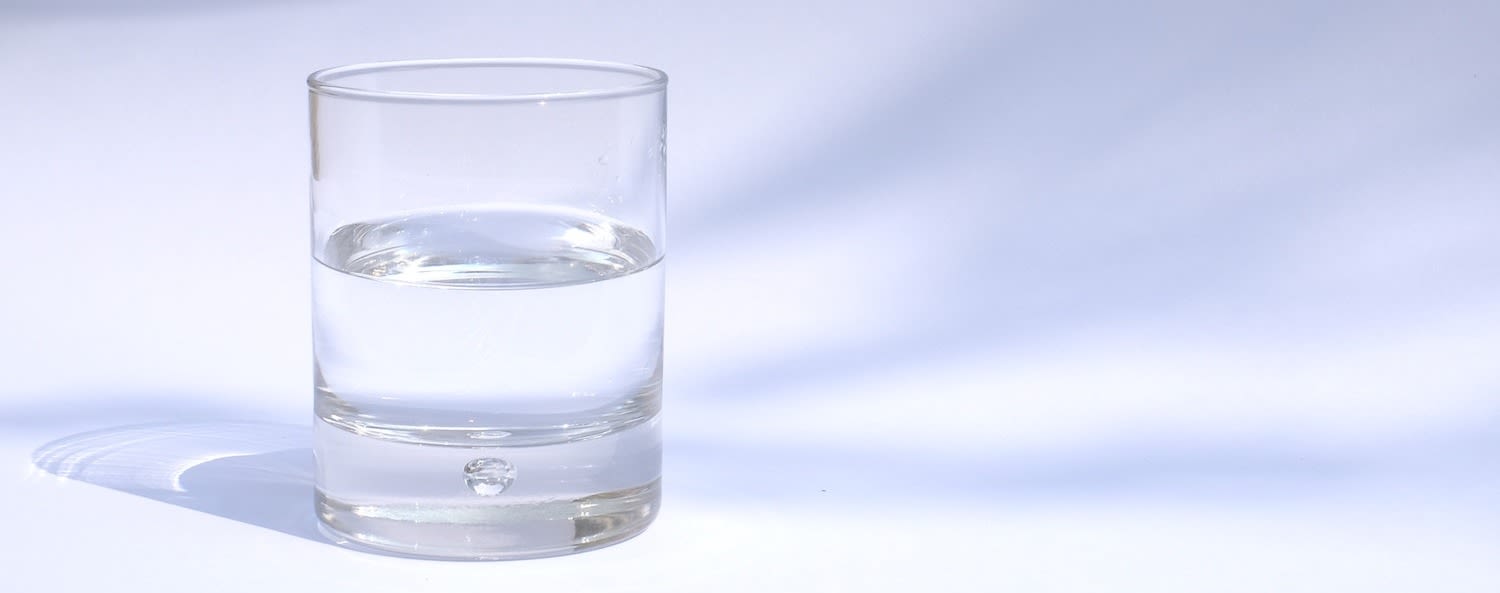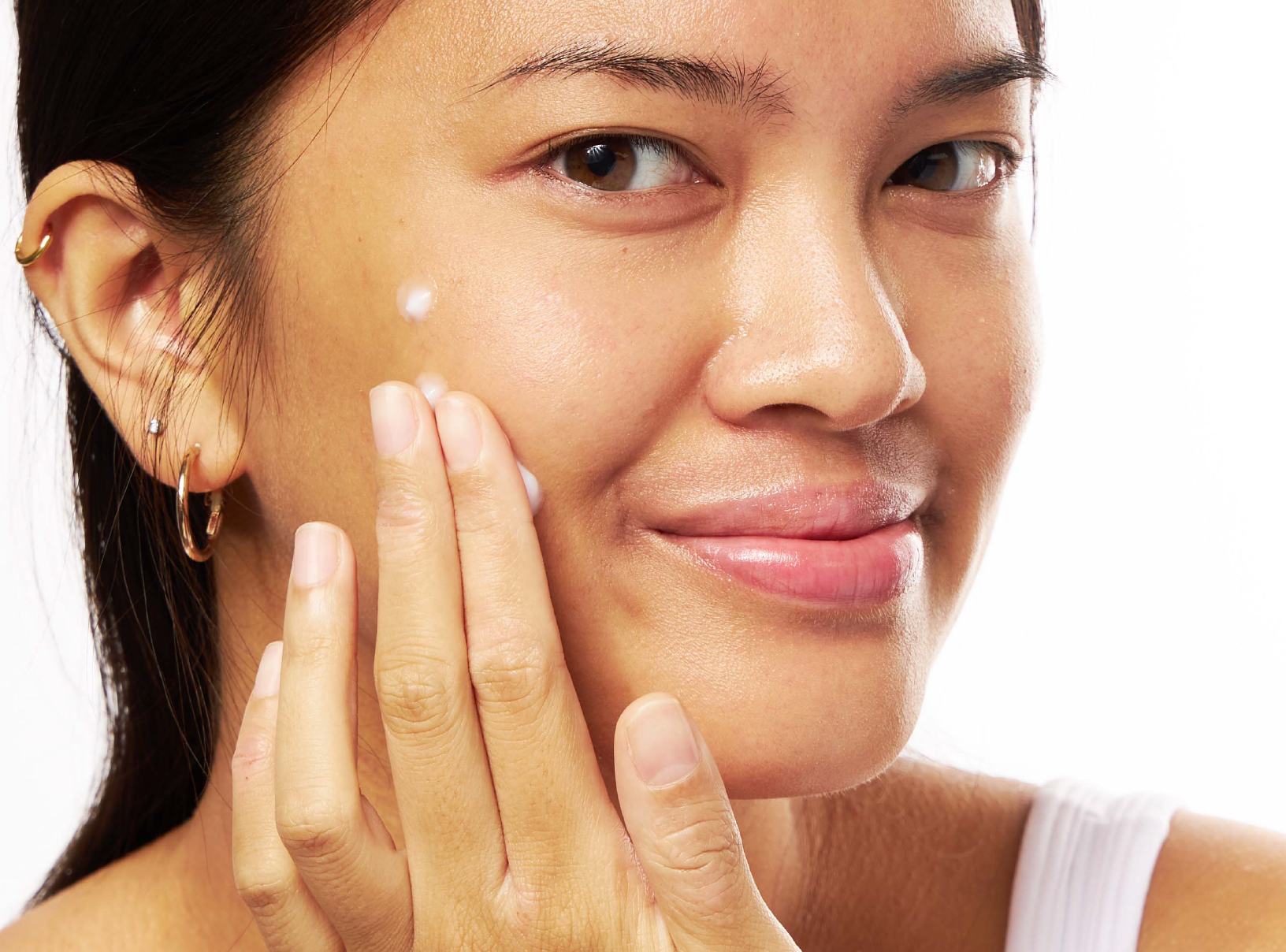Deep Dives
Fact or Fiction: Water and Acne


SHARE
Deep Dives
Fact or Fiction: Water and Acne
Medically reviewed by Aimee Paik, MD
Written by Apostrophe Team
Last updated 11/3/2024
It feels like every time you open up social media there is a wellness guru or influencer telling you that drinking water is the key to staying healthy and glow-y. You know staying hydrated is important for your overall health, but can it keep your acne at bay?
The truth about water and acne
Like the earth, your body is about 70% water. Much of your water content is contained in bodily fluids like blood, lymph, and mucus. These fluids serve two critical functions in keeping your organs happy and healthy: 1) carrying vitamins and nutrients in, and 2) flushing toxins and waste products out. When you become dehydrated, your skin, your body’s largest organ, loses the fluid it needs to carry waste and bacteria out which leaves your skin dry and congested.
Commit to the real deal
Don’t try to fake your fluid intake with soda, milk, or coffee. Other drinks won’t hydrate you the way good old H2O does, and drinks high in sugar or dairy may make acne worse. The Mayo Clinic suggests aiming for approximately 11-15 cups a day. While that may sound like a lot, keeping a bottle of water on hand can help make hydrating a habit and make it easier to remember to drink. Your body will thank you!
Water isn’t a miracle cure
Despite its many benefits, drinking water is not a cure-all for acne. Board-certified dermatologist Dr. Aimee Paik, states, "The water you drink has no impact on your skin's hydration. It is important to not overstrip the skin by overwashing or using harsh soaps or scrubs. Moisturizers are also very important for the skin." For those with very mild acne, over-the-counter ingredients like benzoyl peroxide or salicylic acid might be all you need. For those with moderate to severe acne, a prescription medication may be necessary, which can only be obtained through a dermatologist or healthcare provider (like one through Apostrophe!).
Mom may have been right about drinking water to stay healthy, but it won't zap your zits. Don't let that stop you from staying hydrated, though! Drinking water works from the inside out to help you feel your best.
Sources:
1. Liakou AI, Theodorakis MJ, Melnik BC, Pappas A, Zouboulis CC. Nutritional Clinical Studies in Dermatology. Journal of Drugs in Dermatology. 2013;12(10):611-616. https://www.researchgate.net/profile/Bodo_Melnik/publication/257300802_Nutritional_Clinical_Studies_in_Dermatology/links/55eeab9a08ae199d47bf1064/Nutritional-Clinical-Studies-in-Dermatology.pdf. Accessed February 27, 2019.
2. Melnik BC. Evidence for Acne-Promoting Effects of Milk and Other Insulinotropic Dairy Products. Milk and Milk Products in Human Nutrition Nestlé Nutrition Institute Workshop Series: Pediatric Program. 2011;67:131-145. doi:10.1159/000325580
3. Water: How much should you drink every day? Mayo Clinic. https://www.mayoclinic.org/healthy-lifestyle/nutrition-and-healthy-eating/in-depth/water/art-20044256. Published September 6, 2017. Accessed February 27, 2019.
Like what you just read? Sign up for our email list to get the scoop on skincare science delivered straight to your inbox.

Deep Dives
A dermatologist shares his thoughts on the recent studies about benzoyl peroxide and benzene.
Read More
Education
What is milia?
What is milia? Today, we’re jumping into one type of bump that you may have heard about most commonly in infants — milia.
Read More
Education
Best moisturizer for acne-prone skin
If you have combination acne-prone skin, figuring out which moisturizer is best for your skin might be tough. In this guide, we break down the best moisturizer for combination, acne-prone skin.
Read More